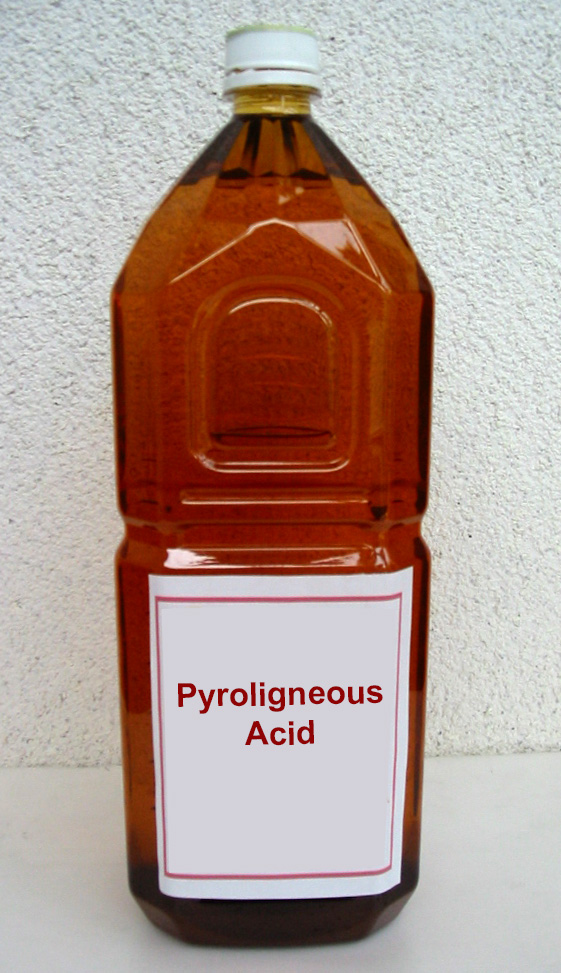
Pyroligneous acid, also called “wood vinegar", is a waste product of charcoal production. By itself, it is a corrosive and hazardous material. If left to stand, pyroligneous acid separates into a water-insoluble tar (called “Stockholm tar") and a liquid which is mostly water but containing a significant amount of acetic acid.
The insoluble tars are used as a veterinary antiseptic, as a wood preservative, and as a substitute for petroleum-derived road tar, and can also be burned for fuel.
The liquid portion of the residue is run through a series of distillations to separate off first the heavy soluble tars (which have uses similar to the insoluble tars mentioned above), and then methanol and acetone from the remaining liquid, which at this point is mostly a mix of water and acetic acid. The recovered methanol has a variety of economic uses.
